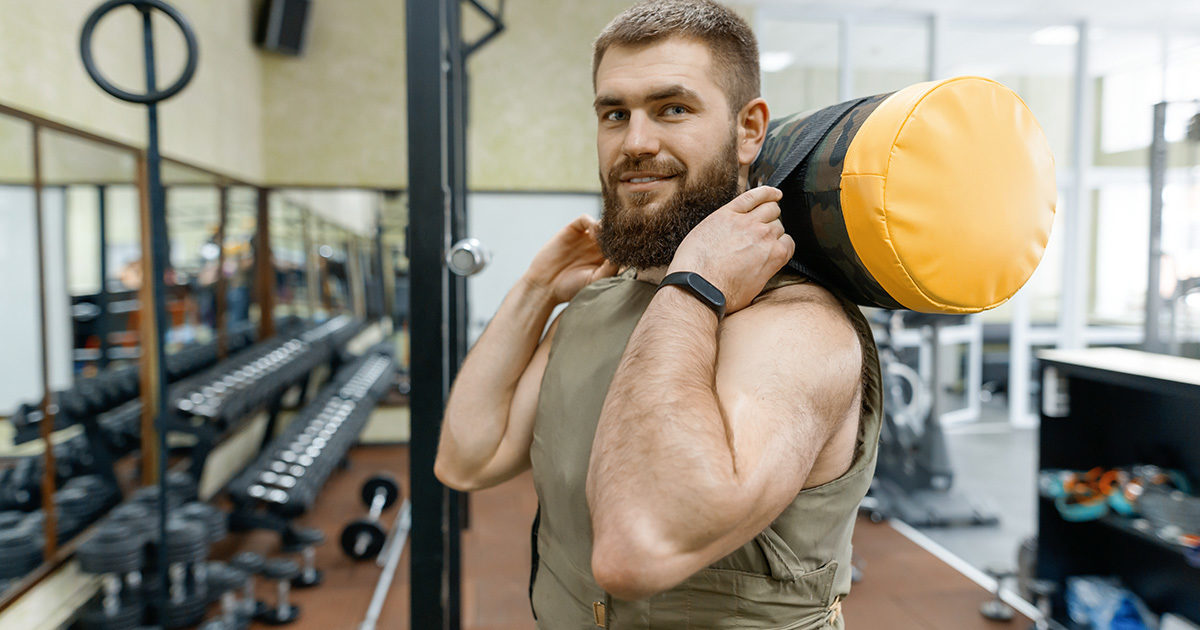UT Health Austin Strong
Providing specialized care for tactical athletes
Reviewed by: Anthony Johnson, MD, FAOA, FACS, FAAOS
Written by: Ashley Lawrence

The term “tactical athlete” emerged at the beginning of the 21st century and has since been used throughout military and sports training circles. Some believe tactical athletes are a direct correlation to military personnel while others argue that anyone who possesses the physical ability, stamina, and strength to function in a combat setting should be considered a tactical athlete. But what exactly is a tactical athlete?
UT Health Austin orthopedic surgeon, Anthony Johnson, MD, FAOA, FACS, FAAOS, who serves as the Sports Medicine Clinical Director for UT Health Austin’s Sports and Injury Clinic within the Musculoskeletal Institute, explains, “A tactical athlete is a person whose physical ability to do a physical performance affects their performance outcome, which typically involves a matter of life or death. On the military side, military members should be athletic but not all military jobs require that they be a tactical athlete. On the civilian side, tactical athletes would consist of first responders, such as police officers, firefighters, and emergency medical technicians.”
As a retired colonel with 28 years of service in the United States Army, Dr. Johnson understands the lifestyle of tactical athletes in both the military and civilian settings. “A lot of veterans can be found in the first responder community, because there’s a cultural fit,” says Dr. Johnson. In fact, first responder occupations are the third most common career choices for military veterans. According to an analysis of U.S. Census data presented by Gregory B. Lewis and Rahul Pathak of Georgia State University, veterans make up 22% of police officers and 15% of firefighters. There are also programs in place, such as Vets to Cops and Troops to Firefighters, to aid in this transition.
Tactical athletes perform physically demanding occupational tasks, which often result in known injury patterns that correlate to their specific occupation and require certain rehabilitation needs to return to duty. “The thing tactical athletes worry about is returning to duty because the job they perform can’t just stop,” says Dr. Johnson. “Tactical athletes also work closely together in a team-focused setting, which often causes worry about letting the team down if they get injured. It’s important for their physician to understand this concept of returning to duty as soon as possible to ensure the patient’s trust isn’t undermined.”
Tactical athletes are often understaffed, but in high demand. Because of their tactical requirements, their training and mission performance is built around reducing their risk of injury. However, both acute and overuse injuries are common among these professionals. To reduce the amount of time it takes troops to return to duty after an injury, the military uses integrated multidisciplinary treatment teams, which are teams of various specialists who come together to determine their troops’ care needs. While these care teams are not new to the military, they are less common in the civilian sector.
“The unique thing about UT Health Austin,” says Dr. Johnson, “is that we are structured in a similar fashion to the clinics found on military bases. We have care teams specific to each patient that are readily available to address the patient’s concerns. That care team can answer whether or not surgery is necessary and will be able to present a care plan right away. Seeing another clinic in Austin will require the patient to go through a process of referrals, potentially delaying their return to duty by weeks rather than what could quite possibly be only a day or two.”
UT Health Austin’s Sports and Injury Clinic is dedicated to treating all athletes, including your everyday jogger, adaptive athletes, and athletes with disabilities. The Sports and Injury Clinic care team also has experience caring for individuals in the U.S. Special Operations Command (Navy SEALs and Army Rangers), the U.S. Armed Forces Sports Program, and USA Paralympic teams.
For more information or to make an appointment with UT Health Austin’s Sports and Injury Clinic, call 1-833-UT-CARES (1-833-882-2737) or visit here.